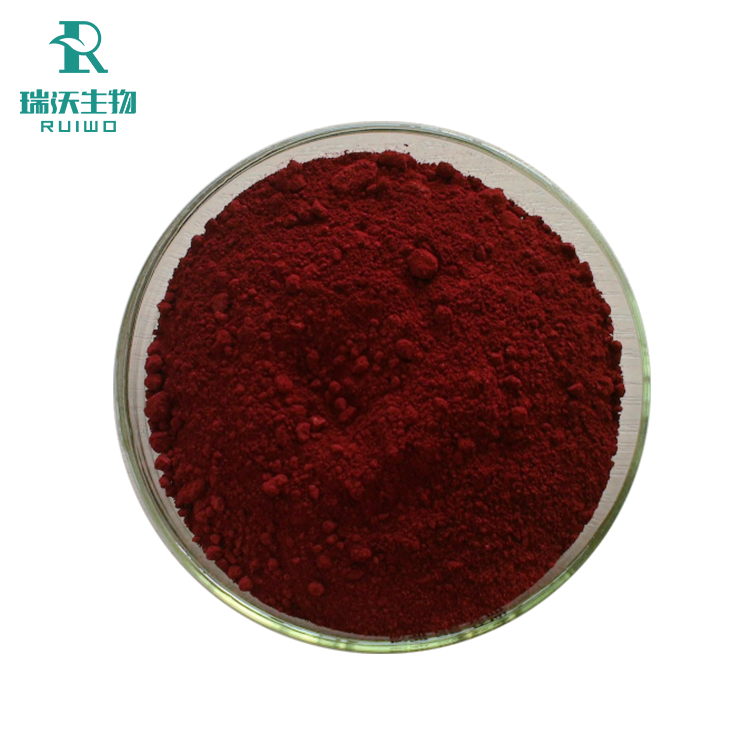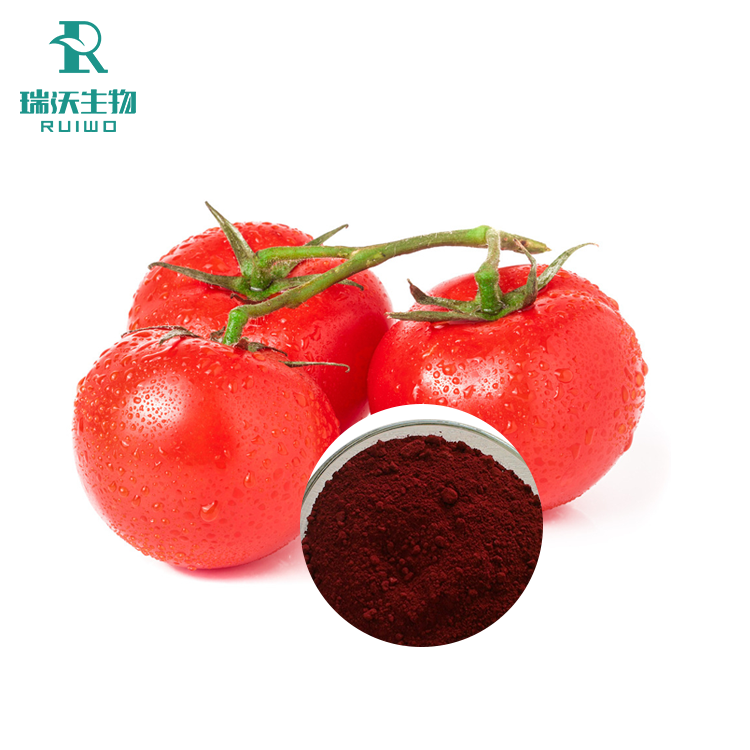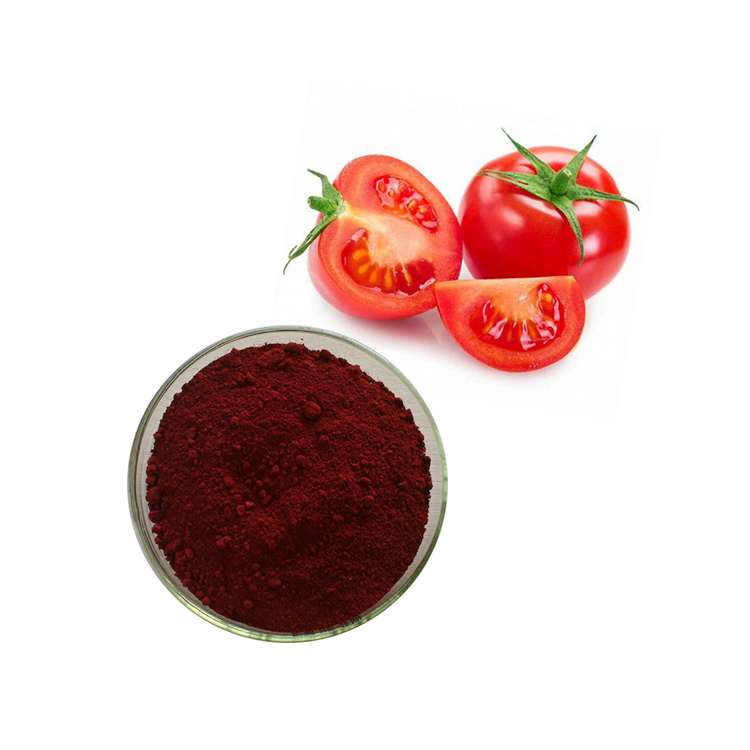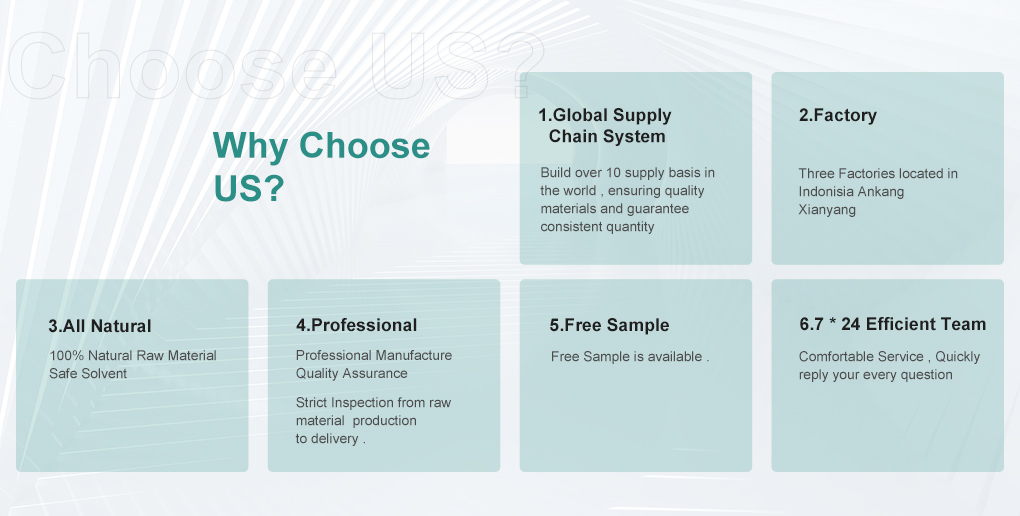main active ingredient
lycopene: a carotenoid that gives color to tomatoes and other red fruits such as watermelon and red grapefruit. Lycopene has powerful antioxidant properties, stronger than vitamin E and other carotenoids, and is able to effectively neutralize free radicals and protect cells from oxidative damage.
The Benefits of Lycopene
antioxidation
Lycopene is a powerful antioxidant that helps reduce free radical damage to cells and tissues and protects the body from various health problems caused by oxidative stress.
Cardiovascular health
• Lower cholesterol: By reducing the oxidation of low-density lipoprotein (LDL, the bad cholesterol), protecting blood vessel walls and reducing the risk of atherosclerosis.
• Anti-inflammatory effect: By inhibiting the inflammatory response, promote blood vessel health and reduce the occurrence of cardiovascular disease.
Anticancer effect
Lycopene is believed to have a certain anti-cancer effect, especially for prostate cancer prevention. It passes through:
• Inhibit the proliferation and induce apoptosis of cancer cells.
• Reduces DNA damage caused by carcinogens.


Skin protection
Lycopene effectively protects the skin from UV rays, reduces skin inflammation, redness and aging caused by UV rays, and may even help reduce wrinkles and dark spots.
Anti-aging effect
Due to its powerful antioxidant capacity, lycopene helps to slow down the aging process, delay the aging and death of cells, and support the health of skin and other tissues.
Eye health
Lycopene has antioxidant and anti-inflammatory effects and may help prevent age-related eye diseases such as macular degeneration and cataracts.
Application of Lycopene
Food supplement
Lycopene extract is widely used in health care products, common forms are:
Lycopene softgel capsules: easy to carry and take, commonly used for cardiovascular health, anti-cancer and anti-aging.
Lycopene liquid: Some supplements in liquid form can be added directly to drinks or foods.
Lycopene powder: Sometimes used in powder form in the food processing industry.
cosmetics
Due to its antioxidant and anti-inflammatory properties, lycopene is often added to skin care products, such as creams, serums and sunscreens, to protect the skin from environmental damage and slow down the aging process.
Food fortification
Some processed foods (such as beverages, condiments, snacks) may also have lycopene extracts added to them to enhance their nutritional value and provide additional antioxidant protection.
Lycopene helps:
• Lower cholesterol: By reducing the oxidation of low-density lipoprotein (LDL, the bad cholesterol), protecting blood vessel walls and reducing the risk of atherosclerosis.
• Anti-inflammatory effect: By inhibiting the inflammatory response, promote blood vessel health and reduce the occurrence of cardiovascular disease.


Anticancer effect
Lycopene is believed to have a certain anti-cancer effect, especially for prostate cancer prevention. It passes through:
• Inhibit the proliferation and induce apoptosis of cancer cells.
• Reduces DNA damage caused by carcinogens.
Skin protection
Lycopene effectively protects the skin from UV rays, reduces skin inflammation, redness and aging caused by UV rays, and may even help reduce wrinkles and dark spots.
Anti-aging effect
Due to its powerful antioxidant capacity, lycopene helps to slow down the aging process, delay the aging and death of cells, and support the health of skin and other tissues.
Eye health
Lycopene has antioxidant and anti-inflammatory effects and may help prevent age-related eye diseases such as macular degeneration and cataracts.
About Ruiwo:


contact us:
Address:Room 703, Ketai Building, No. 808, Cuihua South Road, Xi’an, Shaanxi, China
E-mail: info@ruiwophytochem.com
Phone: 008613484919413 0086-29-89860070
Hours: Monday-Friday: 9am to 6pm
Post time: Dec-03-2024




